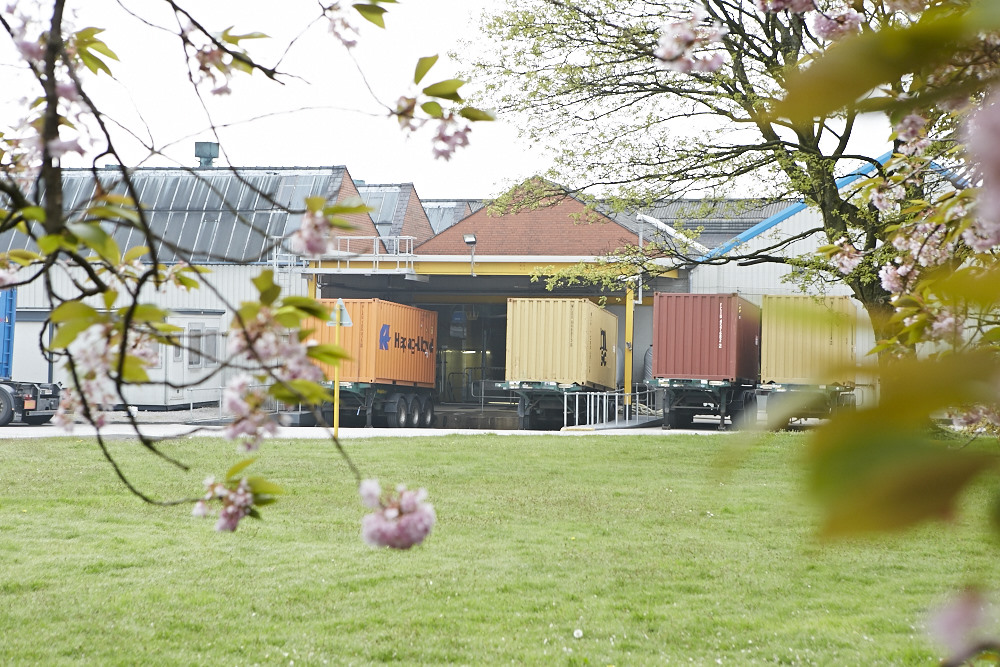This website uses cookies so that we can provide you with the best user experience possible. Cookie information is stored in your browser and performs functions such as recognising you when you return to our website and helping our team to understand which sections of the website you find most interesting and useful.
Global supply chain challenges hits Kingsland Drinks revenues and profits
UK bottler and drinks supplier Kingsland Drinks Limited saw its revenues fall 6% in the 12 months to June 2022, with sales lost as a result of the ongoing challenges to the global supply chain, accounts filed at Companies House show.

According to accounts filed at Companies House, revenues fell 6% to £299.17m before tax, down from £320.22m the previous year, or £204m excluding duty, as the result of the impact of supply chain issues on declining sales.
The director’s report noted the “considerable operational challenges for global supply chains” as the world came out of Covid, which had made it “extremely challenging… to trade efficiently owing to the disruption from shortages of vessels, lack of container and port closures”, direct Andy Sagar wrote. This saw reliability plumet from 74-84% pre-pandemic to around 30-40%, and as a result of these uncertainties, the company had lost sales and customers.
It was “not possible to maintain standard levels of operations services to our customer base,” Sagar said.
Freight costs had also sky rocketed, rising 65% to 140% over the last year as “shipping lines adjusted their business models and massively enhanced their own profitability”.
There was also a knock-on effect on the 21/22 fiscal year from Covid, notably the 2021 Christmas lockdown which affected “a whole segment of the group’s business”, it said. However, the shortages of shipping did appear to lessen the impact of the end of Brexit trade waivers in January 2022 – the implication is that had shipping been running as per pre-pandemic levels, more problems would have arisen from the “complex documentation and limited availability of skilled custom agents in UK and EU”, although the NI protocol had proved to be an area of “administrative uncertainty”.
Fewer fluctuations in Sterling also provided more stability, with the company reporting a loss of only £167,000 due to exchange rate adjustments, rather than £1.057million lost in the previous year. However, the company still warned that “UK bottling less attractive due to relative weakness of Sterling.”
Gross profit was recorded at £9.72m, down from £10.5m last year, while EBITDA fell from £5.4m last year, to £5.2m in the 12 months to 30 June 2022. Meanwhile operating profits also fell from £2.8m last year, to £1.7m in the 2022 financial year, although the company directors pointed out that this “indicates the ability of the business to continue to be profitable despite volatile and challenging trading conditions”.
Business profit also fell to £0.526m, down from £0.609m last financial year – although the directors said the financial position of the company remains “satisfactory”, and there was adequate headroom for borrowing.
The company also flagged up the likely impact of the changes of alcohol excise duty that come into effect on 1 August 2023, arguing that these will be damaging for wine – especially for NW reds – with wine paying an estimate £250m more in duty, while the already less-burdened beer and cider will pay less.
“It seems unfair to increase excise duty based on RPI when government insists in all discussions about inflationary measure that CPI is a more accurate methodology and is used in determining wage negotiations. The effect of the RPI increase combined with the regime change will mean that most wine will suffer an increase in excise duty cost of 20%,” it pointed out.
The 2021-22 financial year marked the company’s first as an employee-owned business – directors said it was a sustainable and long-term alternative to other types of ownership. (shareholders still own 49%)
Related news

